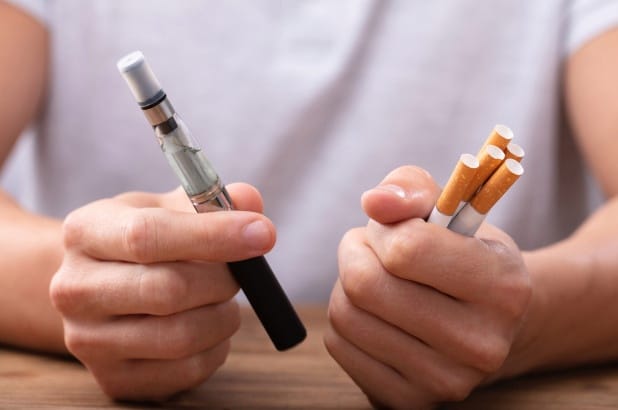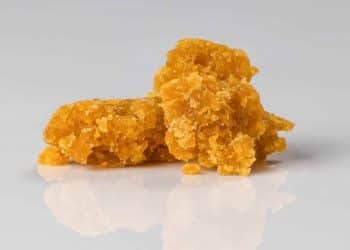Within the last few months, the United States has experienced an uproar regarding vaping. Some cases of lung-related illnesses have been fatal, therefore US lawmakers have attempted to halt the sale and production of flavored vapes and e-cigarettes.
Vapes have caused health concerns since their arrival to the market. However, the current crisis stems from fraudulent, illicit vaping products. These illegally produced vapes may appear to be legitimate products, but they are not tested by laboratories to ensure product safety. Some labs have now begun offering vitamin E acetate testing since the substance has been under serious scrutiny after this substance, used as a thickener for vapes, has been found to negatively impact lung function when inhaled. [1,2] Out of the 47 vaping-related deaths, many victims’ lung tissue contained the dangerous derivative.
Because of these cases, the US Surgeon General has deemed a crisis surrounding e-cigarettes and flavored vapes, though tobacco-based products remain plentiful and unrestricted. While healthier alternatives to cigarettes are being pulled, making them more difficult to obtain, big tobacco companies are moving in to restock the shelves.
Quietly, amid this panic, big tobacco has snuck in, in their search for new markets. Phillip Morris International, a billion-dollar tobacco company, is currently unveiling its newest creation—the IQOS: a tobacco “heating” system. How is it possible to enforce a ban on vaping products due to safety, while companies are simultaneously inventing new methods of “vaping” that might be just as problematic? The answer is: profit.
Phillip Morris is taking advantage of the chaos and uncertainty surrounding flavored vapes and e-cigs with their newest tobacco product — one that wouldn’t be restricted from sales and production. The IQOS has been labeled as a “tobacco heating system,”, and not a vaporizer. The IQOS gently heats tobacco into a vapor form, creating a “smoother” and potentially “healthier” alternative to smoking.
For years, dry-herb vaporizers have existed. And yet, Phillip Morris and media sources like CNN state that, somehow, this is not a vaporizer. You heat a tobacco stick and users inhale an aerosol that is produced that’s not smoke. Are we missing something here? Isn’t that the definition of vaping?
We have spent the last decade unraveling the truths behind tobacco and big tobacco companies, finally understanding the malice and danger behind it all. Now, we are moving in reverse, by discreetly launching these tobacco-based products to replace nicotine, cannabidiol (CBD) or even tetrahydrocannabinol (THC)-based vapes and electronic cigarettes. As their profits and popularity tanked due to these alternatives, companies like Phillip Morris are now capitalizing on this constructed crisis, using it to regain attractiveness toward tobacco products.
Unfortunately, the IQOS and Phillip Morris’ intentions are only the beginning. As we continue to fragment the relationship between consumers and alternative smoking methods, products disguised as not being vaporizers, but bearing the exact characteristics of a dry-herb vaporizer are quite transparent in motive.
References
- Lewis, Nathaniel et al. “E-cigarette Use, or Vaping, Practices and Characteristics Among Persons with Associated Lung Injury – Utah, April-October 2019.” Morbidity and mortality weekly report, vol. 68,42 953-956. 25 Oct. 2019, doi:10.15585/mmwr.mm6842e1. [journal impact factor = 14.874; cited by 5 (GoogleScholar)]
- Blount, Benjamin C et al. “Evaluation of Bronchoalveolar Lavage Fluid from Patients in an Outbreak of E-cigarette, or Vaping, Product Use-Associated Lung Injury – 10 States, August-October 2019.” Morbidity and mortality weekly report, vol. 68,45 1040-1041. 15 Nov. 2019, doi:10.15585/mmwr.mm6845e2. [journal impact factor = 14.874; cited by 5 (GoogleScholar)]
Image Credit: New York Post












